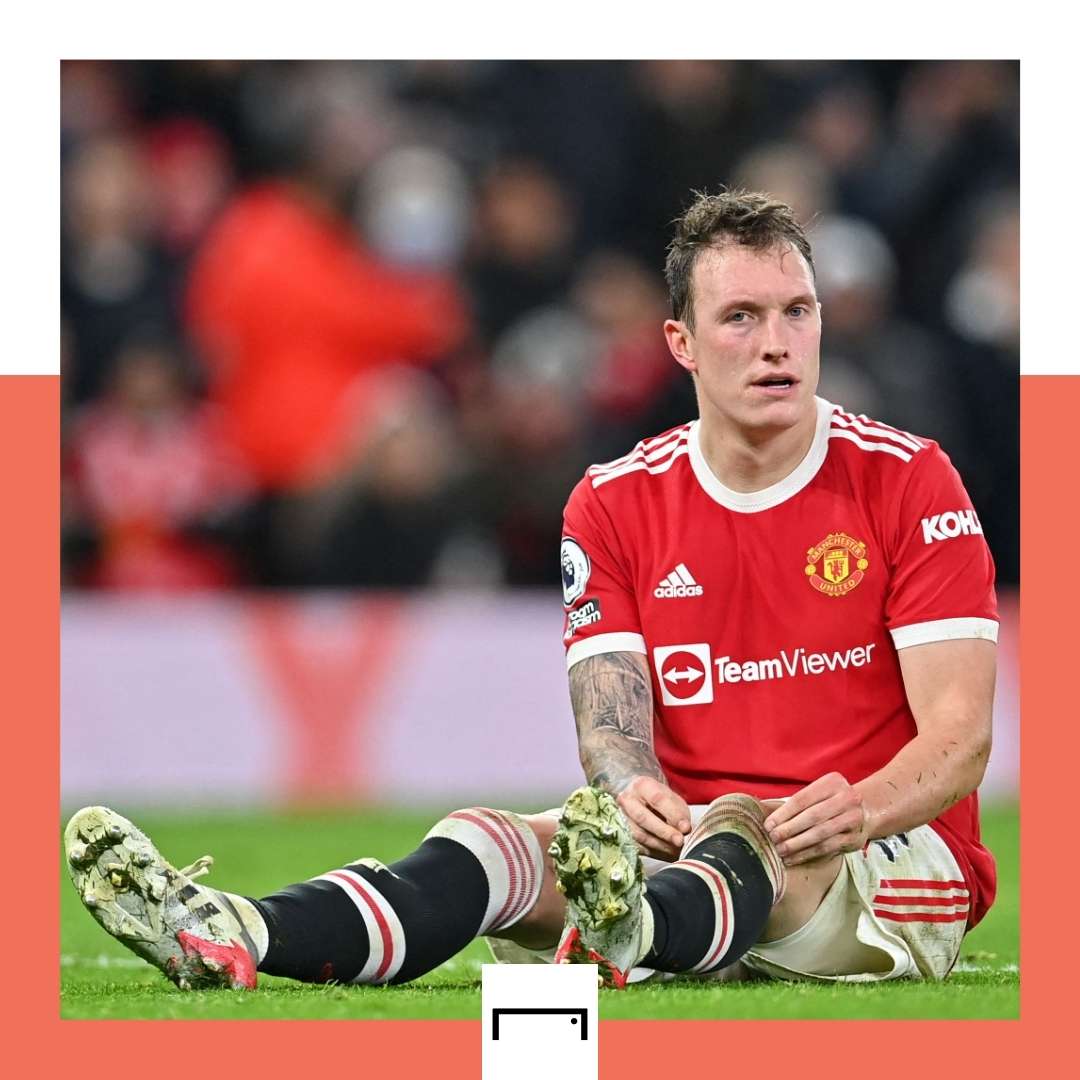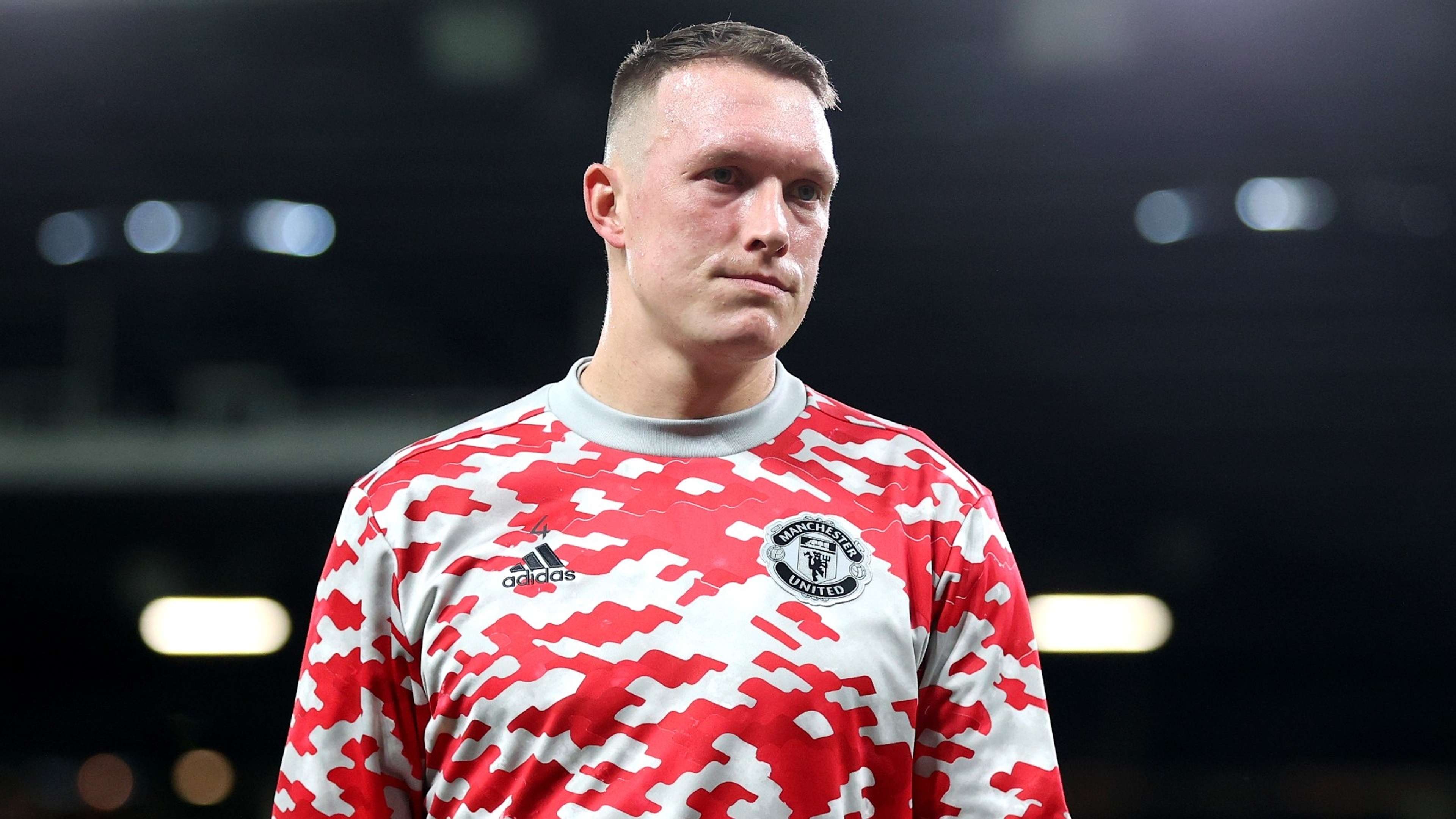When Phil Jones walked off the field after Manchester United’s defeat to Wolves on Monday night, he patted the badge on his chest while he fought back the tears as the supporters in the Stretford End chanted his name.
He had just completed 90 minutes of Premier League football for the first time since January 2020 – something that in the darkest days of his recovery from injury he feared he wouldn't be capable of doing ever again.
Jones' fitness issues first started before he signed for United, when he was still at Blackburn Rovers, and while he bravely battled on with the effects caused by the severe meniscus damage he suffered in his right knee in a game against West Ham in December 2010, it caught up with him after his move to Old Trafford.
During his 11 years at United, he has been sidelined on 22 different occasions with various injuries.
However, he has not let that deter him.
Next Match
During the first coronavirus-enforced lockdown, he would get up before his children to do extra running and gym work. Consequently, when he returned to training with the rest of the senior squad in 2020, he felt fitter and stronger than ever before.
But then, injury struck again, and he required surgery which ruled him out for the entirety of last season.
Cruelly, his injury record, facial expressions and form have led to the centre-back becoming a figure of ridicule during his United career, so much so, in fact, that he deleted all of his social media accounts in 2017.
That may have spared him all of the abuse he received online, but it did not stop him becoming a scapegoat.
 Getty/GOAL
Getty/GOALIn August 2020, Twitter were forced to apologise to the player after United lodged an official complaint with the social networking service after it posted a picture of the 29-year-old which provoked a stream of abuse.
It hasn't just been faceless fans who have unfairly attacked Jones either. His former team-mate Rio Ferdinand called him a "waste of time" on YouTube back in August.
It is believed that Ferdinand's attack prompted Jones to give a detailed interview on the struggles he has faced in getting back to full fitness.
That dedication and determination to play again also triggered an impassioned defence of Jones by then-United manager Ole Gunnar Solskjaer and it is understood Ferdinand has since been in touch to apologise for his comments.
Sources say Jones has used the setbacks and criticism to drive him on and anyone that has worked with the centre-back will testify to his dedication and perseverance.
After 14 months of rehabilitation, he completed his first full session in August 2021 and was applauded onto the training pitch by his team-mates.
It is understood that he is still regularly one of the first at the training ground, in order to do a longer warm-up in the hope that it will minimise his risk of him suffering a recurrence of his injury issues, while his hard work in the sessions has also been noted.
Furthermore, he is a popular figure around the club’s Carrington training base, with sources crediting Jones with "keeping morale up" during tough times such as these.
Jones’ first taste of action this season came in September when he played for Neil Wood’s Under-23s side at Arsenal. Even though it meant a long journey south, he asked to play to boost his attempts to get match fit.
Jones was also given the option to make his own way down to London but he chose to both travel and stay with the rest of the team.
The group were really impressed with how well he integrated himself and he offered advice to several players, including fellow defenders Teden Mengi and Bjorn Hardley.
Jones completed 90 minutes against Arsenal and played another full game seven days later at Leigh Sports Village as United hosted Brighton.
He didn't just ingratiate himself to the Under-23s, though. During United's Champions League trip to El Madrigal in November, he asked permission to go cheer on the Under-19s in their UEFA Youth League clash with their Villarreal counterparts.
He still hadn't featured in a first-team fixture, though, when he travelled to Spain with the senior squad for the Champions League clash with Villarreal before returning to the team hotel for a pre-match meal with the senior squad.
It is this supportive nature, coupled with the dedication and effort he has displayed in training, which has endeared him to Solskjaer's successor, Ralf Rangnick.
Indeed, despite the shock Jones' inclusion caused, the German coach had no qualms about starting the England international in Monday's Premier League clash with Wolves a staggering 712 days after his previous appearance for the club.
“I think he did well,” Rangnick said at full time. “Bearing in mind he hasn’t played for two years on that level, you didn’t see that in the game. He played as if he had played in the last couple of weeks."
The emotion of what his comeback meant was clear to see on his face when he left the pitch but it also meant a lot to his team-mates.
It is understood David de Gea, Luke Shaw and Scott McTominay all sought Jones out in the dressing room at full-time to pat him on the back, while the fans showed their appreciation too with their vocal backing throughout.
So, what's next for Jones?
He was only drafted back into the team because of the unavailability of both Harry Maguire and Victor Lindelof and both are expected to return imminently.
Jones is understandably desperate for game time and a number of clubs are interested in taking him on loan for the remainder of the season, while United are open to offers.
Whatever happens, one can only hope that the most difficult days of Jones' career are finally behind him.
And even if Monday night turns out to be the last time he starts a game at Old Trafford, then it is a moment he can look back on with pride.
United may have lost on the night but playing the full 90 minutes was a victory in itself. Because many doubted it would ever happen again, Jones included.


